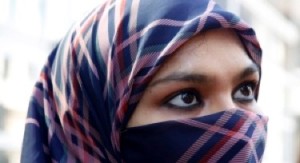A look at this month’s most pointless appeals

In less than twenty-four hours, appeals were announced in two cases that made massive headlines both in Canada and the US. After the Federal Court of Appeal held that the ban against wearing niqabs during citizenship ceremonies is unlawful, the Minister of Citizenship and Immigration announced on 18 September 2015 that they would appeal this decision to the Supreme Court of Canada (SCC). The day before, Roger Goodell, Commissioner of the National Football League (NFL), made a formal declaration of his intent to appeal the Brady v NFL decision made earlier this month. Personally, I find both appeals ludicrous. If the SCC decides to hear the niqab case, it will more than likely add another notch to the very long list of losses for the conservative government in Ottawa. Goodell, on the other hand, has bullied his way to the point where not only his league, but also other leagues may suffer as a result.
Let’s take a look at these two appeal requests and see if there’s any chance of victory.
The Minister of Citizenship and Immigration v Zunera Ishaq
So far the government has spent almost $300,000 on this case. After paying what feels like that much to go to law school, that number scarily does not seem like a lot. However, spending any money on useless appeals and encouraging distracting issues during a federal election just annoys me on principle. Zunera Ishaq has removed her niqab for all security purposes, for her driver’s license, and for her actual citizenship test, but apparently that isn’t enough.
The problem with the government’s case is that it isn’t based on any sort of law. It isn’t a question of security or identity, since in Ishaq’s situation these things have already been established. The case is based on feelings: the government finds the niqab “offensive” and feels it isn’t appropriate to wear at an oath ceremony. The Federal Court of Appeal dismissed the government’s case without discussing the Charter of Rights and Freedom, instead stating that the ban on niqabs violates the Citizenship Act (R.S.C., 1985, c. C-29), which states that religious freedom should be allowed to be expressed during citizenship ceremonies. In what feels like a jab aimed at the government, the judges ended their ruling by saying that they didn’t want to go into the Charter argument so as to expedite Ishaq’s citizenship process and give her a chance to vote in the federal election on 19 October.
I’ve read some critics of Ishaq complaining that she is making a political argument rather than a religious one, since niqabs aren’t mandatory in the Islamic faith. First of all, it’s very funny telling someone what his or her faith means to them. I’m pretty sure that’s not going to fly at the SCC. Besides, if she is standing up for her rights as a political issue, I am even more on her side, because overt islamophobia has no place anywhere, especially in politics. I might have my own feelings about niqabs and religion in general, but guess what? I am not Ishaq, and neither is Stephen Harper; if she has not violated any rules of the citizenship process and chooses to wear a niqab in public, that is absolutely her right.
Chances of winning the appeal: 1 in 20. A Supreme Court that loves expanding Charter freedoms vs. a federal government on a shaky case that smacks of racism (and sexism)? 1 in 20 is generous.
Brady v NFL
There’s certainly no better use of judicial resources than deciding a squabble between a couple of millionaires fighting over balls. In case you weren’t paying attention to what has commonly been called “Deflategate,” Goodell suspended star quarterback of the New England Patriots, Tom Brady, for his alleged part in a conspiracy to deflate the air in game footballs. Brady was suspended for four games, a lengthy suspension for a league that plays sixteen regular season games. Brady and the NFLPA appealed the suspension, which was then sent to an arbitration that was presided over by the very man who issued the suspension in the first place, Roger Goodell. Not surprisingly, Goodell upheld the suspension.
Some of my favourite moments in law this summer were the many, many times District Court Judge Richard Berman urged Brady and Goodell to reach a settlement because he did not want to have to decide on the facts of this case. Judge Berman brought up the fact that ruling on this case will likely lead to years of appeals. He tried to urge the NFL to settle by warning them on numerous occasions that they didn’t have a strong case, since they could not provide any direct evidence to link Brady to the ball tampering. But stubbornness prevailed despite the many settlement hearings, forcing Judge Berman to rule in favour of Brady and throw out the four-game suspension due to a lack of fairness and due process by the NFL.
Sports and entertainment lawyer Michael McCann has suggested that pushing this appeal to a higher level of court could have serious consequences for the NFL (and the other major sports leagues who have their head offices in New York City) by creating a binding precedent that could potentially make it more difficult for leagues to enforce arbitration punishments. McCann also researched Judge Berman’s record, and found that only 8% of his decisions have been reversed. In another strike against the NFL, there is also the very real possibility that Brady will retire before the appeal process comes to an end, which would lead to the courts simply throwing out the case after years of litigation.
Chances of winning the appeal: 1 in 10. Judge Berman’s record plus the completely buffoonery of this appeal makes it more than likely that Brady will continue his winning ways.
